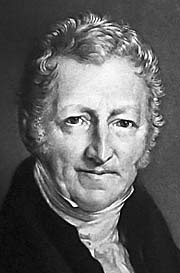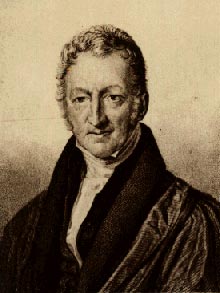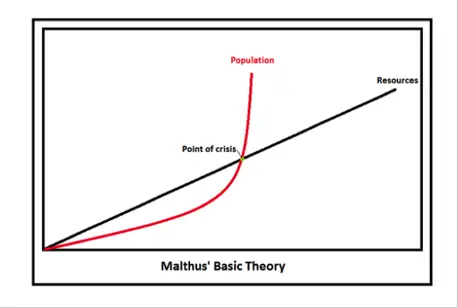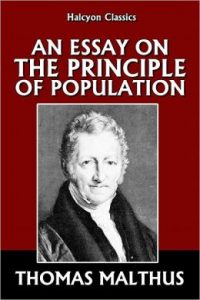Robert was the seventh child Daniel Malthus and Henrietta Catherine. Thomas Malthus used only his middle name, Robert himself. He was born in Surrey, England. His father was prosperous and unconventional.
Thomas Malthus Biography
He arranged education for his son at home until he enrolled at Jesus College, Cambridge University in 1798 to study for the both under graduation and graduation.

He took his graduate degree with honors and prizes in English declamation, Latin, and Greek as well as Ninth Wrangler in mathematics. He earned a master’s degree in 1791. Two years later, Malthus was elected a Fellow of Jesus College in 1793.
Thomas Malthus’s Early Life
East India Company appointed Thomas Robert Malthus as a professor of History and Political Economy in 1803 in Haileybury, Hertfordshire. Robert remained there until his death.
Malthus was an elected a Fellow of the Royal Society in 1819 while became a member of Political Economy Club in 1821. He became one of the ten royal associates of the Royal Society of Literature in 1824 and the first Fellow of the Statistical Society of London in 1834.
Beliefs of Thomas Malthus
The danger of population growth was publicly addressed by one of the scholar, Thomas Malthus. Thomas Robert Malthus is hugely known for his theories on population growth.
In the field of political economy and demography, this English scholar had a great influence. He gave a dire warning to overpopulation. He indicated that temporary improvement led to population growth and restored the level of per capita production.

But he did not oppose the growth of population. He showed an increase in food production influenced the well being of the people of a nation.
Malthus could not support the increase of food production by modern technology when crop yielding grew with the impact of pesticide, insecticide, mechanized farm equipment, refrigeration in Europe.
Thomas Malthus Contribution
His observation is known as ‘Malthusian trap’ where viewed that the people had a tendency to use a large quantity to maintain a high standard of living. The lower class of the population suffered hardship.

But there was a propensity to grow the population. So, there was vulnerability to diseases or famine. The view of this English cleric is termed as ‘Malthusian catastrophe’. And his subsistence theory of wages had widely accepted which helped the economy.
According to Malthus prediction, when the supply of food grows arithmetically, the population would be increased geometrically.
Thomas Malthus Principle of Population
He observed that the subsistence production of the globe for men is much lesser than the power of the population. And that inevitable resulted mass starvation.

He viewed whenever conditions and society improved the population would increase. His observations showed when population growth induced by high wages and to sustain a worker, the wages would drop down to a minimum requirement.
Thomas Malthus Major Accomplishments
An Essay on the Principle of Population brought him to the prominence. His work on this subject updated with new materials, changes of his own perspectives and address with criticism.
He wrote a ‘Memoir’ of Malthus, based on his European tour. Later he wrote the second edition,’ Principles of Political Economy ‘in 1836.